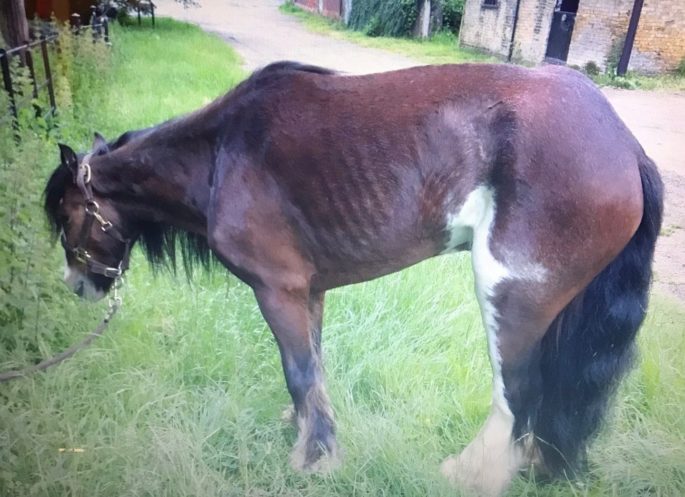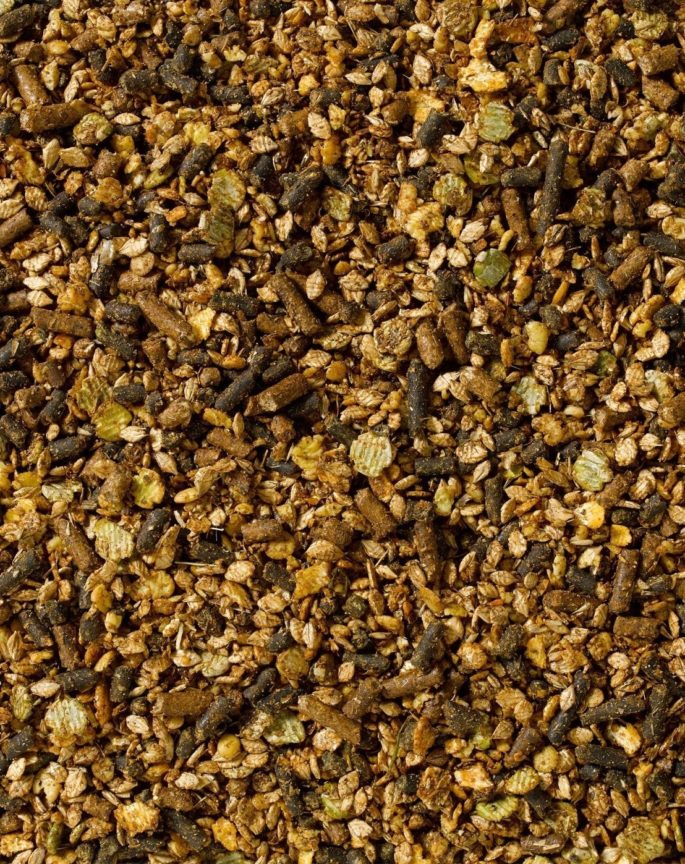Equine Grass Sickness Week
Equine Grass Sickness is a disease that has been recognised in horses since the beginning of the 20th century with the UK having the highest number of EGS cases compared to other countries around the world.
Despite nearly 100 years’ worth of research, the cause is still unknown with many potential causes investigated such as poisonous plants, chemicals, bacteria, viruses, insects, and metabolic upsets however none have been proven to be linked with the disease.
A significant number of horses with EGS have a history of stress, suggesting that stress such as recent purchase, mixing with strange horses, travelling long distances, breaking, castration etc, could be a predisposing factor in the development of EGS.

SYMPTOMS OF EQUINE GRASS SICKNESS
There are three identified forms of EGS, acute, subacute and chronic all of which have overlapping symptoms that relate to the partial or complete paralysis of the digestive tract from the oesophagus downwards. Gut paralysis presents symptoms of colic, difficulty swallowing and drooling of saliva.
In acute/subacute EGS the symptoms are severe with the prognosis very poor, however, in chronic forms of EGS the symptoms appear slower and may only present as mild cases with the appetite being reduced rather than complete inappetence and various degrees of difficulty swallowing rather than a complete inability to swallow. One of the major symptoms of EGS is rapid and severe weight loss due to paralysis of the gut rendering the horse unable to swallow and transport food.
RESEARCH & TREATMENT OF EQUINE GRASS SICKNESS
The Equine Grass Research team, along with the Royal (Dick) School of Veterinary Science and Liverpool University are active in researching the causes of EGS. At the moment, the main line of investigation is into the role soil borne Clostridium botulinum type C plays in the cause of EGS. Research has discovered that the concentration of Clostridium botulinum type C toxin is high in the intestines of animals with acute EGS and that horses with low levels of antibodies to the bacteria and its toxin are at an increased risk of EGS.

Feeding a horse with Equine Grass Sickness
Unfortunately, there are no known supplements that can be fed to prevent a horse from getting EGS, however, ensuring that your horse has a well-balanced diet, containing optimum levels of trace elements, antioxidants, and quality protein will certainly help to ensure that he has good and strong immune defences.
Using supplements, such as prebiotics, or manna oligosaccharides (MOS), such as BioMos, can help to improve health by ensuring that the horse’s own natural ecosystem of defences are kept healthy thus reducing the opportunity for pathogenic bacteria to get a foothold within the gastrointestinal tract. Prebiotics act as a food source for the horses’ ‘friendly’ gut bacteria, while manna oligosaccharides have the ability to bind pathogenic bacteria and simply carry them out of the horse’s body, while also helping to stimulate the horse’s immune system activity.
In the early stages of EGS usually, it is a case of feeding the horse small amounts of whatever it will eat rather than trying to persevere with the ideal feed if the horse simply won’t eat it at this stage. Feed balancers are useful, as they contain concentrated sources of quality proteins for cell renewal, tissue and muscle repair and vitamins and minerals for supporting immune function and metabolism. They will also contain yeast to help maintain a stable pH in the hindgut. Some balancers, such as Saracen Competition-Fit Balancer, also contain flavours to help stimulate appetite. As the horse’s appetite starts to increase then conditioning feeds can be introduced with fat supplements, such as Equi-Jewel®, added to keep meal sizes small but energy dense.
Often it is a case of offering a ‘cafeteria style’ of feeding where multiple small buckets containing different feeds are presented to the horse, allowing them to pick what is appealing to them that day. you are likely to find that what is eaten one day is not tolerated the next so having a selection can be helpful in maintaining a daily intake of hard feed. Palatable feeds from the Saracen range which we often suggest when trying to capture the interest of a horse with Equine Grass Sickness are:
- RE-COVERY Mash
- RE-LEVE®-MIX / Cubes
- SUPER FIBRE CUBES
- SUPER FIBRE MIX
- HORSE & PONY COOLING MIX
- COMPETITION-FIT-MIX
- EQUI-JEWEL
- CONDITIONING MIX
- SHAPE-UP
- VETERAN MIX
Stay up-to-date
Keep up-to-date with all of our news & offers. Sign up to our newsletter here
Feed Advice Form
Complete our online form to receive a detailed nutritional plan for your horse or pony from one of our registered nutritionists.
Quick Feed Finder
Use our quick and easy feed finder as a guide to select the right feed for your horse or pony.












